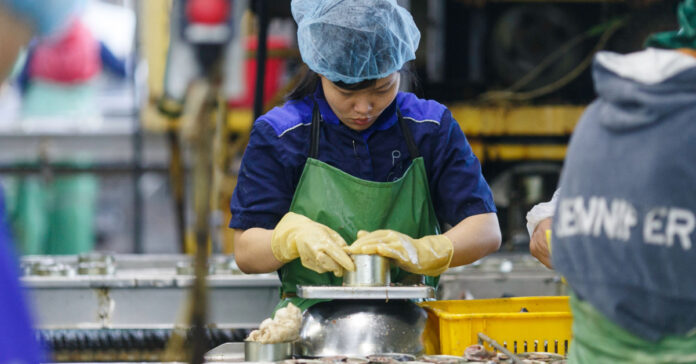
From January 11th to 14th, a group of North Koreans shipped to a Chinese seafood factory rioted and took over the building in protest of unpaid wages. Japan’s Yomiuri Shimbun newspaper first broke news of the story on February 18th after speaking to a North Korean about the incident.
According to the source, this was the first uprising, and they believed it was a sign the leadership in Pyongyang needed to recognize that the younger people had had enough. Seeing their loved ones sold off into foreign slavery, they weren’t going to allow it to happen to them. According to a report by Radio Free Asia (RFA), the factory these workers were in didn’t just prep seafood. They also made apparel and produced medicine as well.
On Jan 11th, multiple former female soldiers from North Korea started a riot and took control of the factory, as well as taking hostages. Pyongyang sent in their secret police to invade and quell the uprising, but they were unsuccessful as the workers refused them entry. At some point, workers began assaulting someone who either manages the factory or is a representative of the company. While that is unclear, what is clear is that at some point on January 14th, the standoff ended as he was beaten to death.
Yomiuri Shimbun’s sources claim that workers were appeased when North Korea agreed to pay them their full wages. However, when 200 of the 2,000 workers were dragged back to North Korea to a “political prison” for a “severe punishment,” they went right back to rioting. Reps from RFA confirmed the uprising as well but claimed things had been settled as of the 14th. They admitted they are concerned things could stir back up since the “funds to pay back wage arrears have dried up.”
Stories of North Korea selling their people into slavery is a story as old as the nation itself. Any wages they earn are heavily taxed by the hermit nation, to the point where they have little to nothing when they return to North Korea, if they even do. Many find themselves permanently enslaved to China or to the factory they were sold to.







